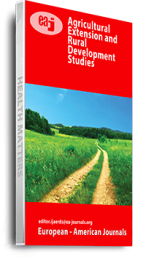The study ascertained the barriers to contraceptive use among rural farmers in Akwa Ibom State, Nigeria. Data obtained from one hundred and sixty rural farmers, using multi-stage sampling procedure, were analyzed using frequencies, percentages, means and ranks. Results show that 51.3% of the respondents, with an average age of 40 years, were females and 73.1% were married; majority of the respondents (96.2%) had formal education with an average monthly income of N28, 500.50 and an average of 36 years of farming experience. Findings also show that the most utilized contraceptive methods by the rural farmers were barrier methods (condoms, diaphragm), hormonal contraceptives (pills) and abstinence; lack of information on effective use of contraceptives, perceived negative side effects of contraceptive use and lack of required skills for effective use of contraceptives were the most severe barriers to contraceptive use faced by the respondents. The State Government, Non-Governmental Organizations, Community-based organizations as well as other development agencies in Akwa Ibom State should organize enlightenment programmes on contraceptive use specifically targeted at rural areas of the State in order to help overcome the major barriers to contraceptive use faced by rural farmers in the State.
Keywords: Akwa Ibom State, Barriers, Contraceptive, rural farmers

